Recent Blog Posts
What Are Wisconsin’s Boating While Intoxicated Laws?
 Summer is around the corner and Wisconsin’s lakes and rivers will once again be filling up with boats. It is possible, even likely, that some of Wisconsin’s boat drivers will be filling up on beer, wine, and other alcoholic drinks. Wisconsin is one of the leading states for intoxicated boating and boating accidents. Alcohol plays a role in one out of every five accidents on the water. Before you get behind the controls of a boat, it is best to know the laws for intoxicated boating and what penalties you may face if caught.
Summer is around the corner and Wisconsin’s lakes and rivers will once again be filling up with boats. It is possible, even likely, that some of Wisconsin’s boat drivers will be filling up on beer, wine, and other alcoholic drinks. Wisconsin is one of the leading states for intoxicated boating and boating accidents. Alcohol plays a role in one out of every five accidents on the water. Before you get behind the controls of a boat, it is best to know the laws for intoxicated boating and what penalties you may face if caught.
Enjoy Summer, But Be Safe on the Water
For the operator of a private boat over the age of 21, the legal limit for blood alcohol content (BAC) is .08, just like for motor vehicles. For operators of commercial boats, the legal limit drops to a BAC of .04, matching that of commercial drivers. If your boat is stopped under suspicion of intoxicated boating, you may be subject to sobriety tests right on the boat. Law enforcement no longer waits to perform the tests until reaching dry land. Unlike motor vehicles, there is no open container law on a boat. This means your boat cannot be stopped simply for having alcohol aboard. In addition to alcohol, you may not operate a boat if you have any detectable level of a restricted controlled substance in your blood.
What To Do if You’ve Been Declared a Habitual Traffic Offender in Wisconsin
 For those with multiple traffic violations in Wisconsin, you run the risk of penalties beyond the normal accumulation of fines and license suspensions. Drivers who have racked up a qualifying number of violations over a five-year period will be declared a Habitual Traffic Offender and automatically lose their license for five years. The road to getting your license back is not easy, but working with the right attorney can help when you are facing this situation.
For those with multiple traffic violations in Wisconsin, you run the risk of penalties beyond the normal accumulation of fines and license suspensions. Drivers who have racked up a qualifying number of violations over a five-year period will be declared a Habitual Traffic Offender and automatically lose their license for five years. The road to getting your license back is not easy, but working with the right attorney can help when you are facing this situation.
Wisconsin’s Tough Habitual Traffic Offender Law
To ensure public safety and protect other drivers and residents from those with a history of repeated traffic violations, Wisconsin has instituted a Habitual Traffic Offender law. Violations are tracked by the state’s Department of Motor Vehicles, and the law applies to traffic offenses by Wisconsin drivers both in the state and out of state. It also keeps track of residents of other states who have convictions in Wisconsin. To qualify as a Habitual Traffic Offender, a driver will have accumulated the following within a five-year period:
What Should I Do If I’m the Victim of a Hit and Run?
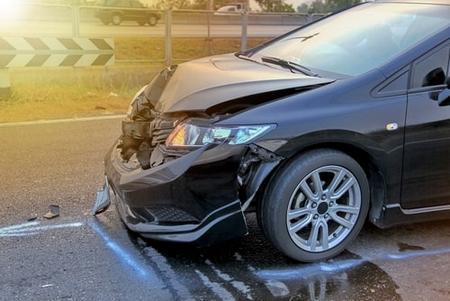 Being in a motor vehicle accident, especially if you are injured, can be a jarring experience. That experience can be made worse if the other driver does not stop. Wisconsin law requires drivers who know or believe they have caused a traffic accident to stop. If you do not have the other driver’s information, you may not know where to turn. By calling an experienced hit-and-run attorney, you can start to put the pieces back together and receive the compensation you deserve.
Being in a motor vehicle accident, especially if you are injured, can be a jarring experience. That experience can be made worse if the other driver does not stop. Wisconsin law requires drivers who know or believe they have caused a traffic accident to stop. If you do not have the other driver’s information, you may not know where to turn. By calling an experienced hit-and-run attorney, you can start to put the pieces back together and receive the compensation you deserve.
Hit-and-Run Laws in Wisconsin
Under Wisconsin law, after a traffic accident you must stop, exchange information with the other driver, call the police if the accident is serious or caused an injury or death, and provide reasonable assistance to the driver and passengers in the other car. Failure to stop or meet the other requirements can open a driver up to civil and criminal consequences.
Tips For Drivers and Bicyclists When Sharing the Road
 With warmer weather slowly returning to Wisconsin, more bicyclists and pedestrians will be out on local roads. Some drivers may not know the rights and responsibilities that bicyclists have as they are sharing the road with motor vehicles or the proper behavior for drivers around bicycles. Bicycles are considered vehicles and belong on the road. Here are some tips for safe driving when bikes are present and to avoid risking severe accidents and traffic violations.
With warmer weather slowly returning to Wisconsin, more bicyclists and pedestrians will be out on local roads. Some drivers may not know the rights and responsibilities that bicyclists have as they are sharing the road with motor vehicles or the proper behavior for drivers around bicycles. Bicycles are considered vehicles and belong on the road. Here are some tips for safe driving when bikes are present and to avoid risking severe accidents and traffic violations.
Wisconsin Rules of the Road for Bicycles and Motor Vehicles
-
Bicyclists should generally ride on the right side of the road or traffic lane, except when passing slower traffic, going around objects such as parked cars or other hazards, preparing to make a left-hand turn, or when the road is too narrow to move farther to the right.
-
Motor vehicles passing a bicyclist must maintain at least three feet of space between them and the bicycle. You are permitted to cross a double yellow line in order to keep this distance while passing a bike.
4 Ways Being a Sex Offender Impacts Your Life
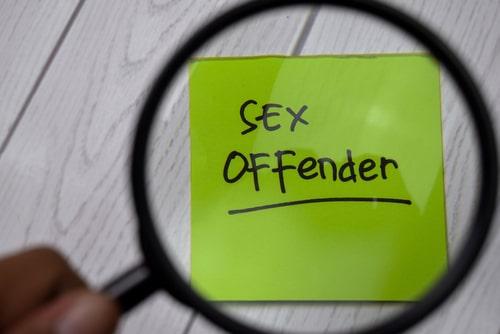 If you have been charged with any type of sex offense, your situation is incredibly serious. Having a sex offense on your record will impact almost every area of your life. Being on the sex offender registry closes a lot of doors. Opportunities that otherwise would have been available to you can disappear. Your reputation can be destroyed very quickly. You are also likely facing prison time - judges typically do not go easy on those being sentenced for sex crimes. Even after any judicial consequences are over with, being a sex offender can permanently alter the course of your life. The best thing you can do for yourself right now is to find an experienced criminal defense attorney. There are steps a lawyer can take to help you.
If you have been charged with any type of sex offense, your situation is incredibly serious. Having a sex offense on your record will impact almost every area of your life. Being on the sex offender registry closes a lot of doors. Opportunities that otherwise would have been available to you can disappear. Your reputation can be destroyed very quickly. You are also likely facing prison time - judges typically do not go easy on those being sentenced for sex crimes. Even after any judicial consequences are over with, being a sex offender can permanently alter the course of your life. The best thing you can do for yourself right now is to find an experienced criminal defense attorney. There are steps a lawyer can take to help you.
How Can Becoming a Sex Offender Affect My Life?
There are a lot of legal requirements that sex offenders have to abide by. There are also a lot of collateral consequences from a social perspective. Some ways that becoming a sex offender may affect you include:
What Are the Consequences of Vehicular Homicide in Wisconsin?
 When operating a car or any motor vehicle, you are in control of what can be a very dangerous object. While basic traffic violations are unlikely to harm others, driving recklessly can have deadly consequences for yourself and other drivers, passengers, pedestrians, and bicyclists on the road. If you strike and kill another person with a vehicle in Wisconsin, you can be charged with vehicular homicide.
When operating a car or any motor vehicle, you are in control of what can be a very dangerous object. While basic traffic violations are unlikely to harm others, driving recklessly can have deadly consequences for yourself and other drivers, passengers, pedestrians, and bicyclists on the road. If you strike and kill another person with a vehicle in Wisconsin, you can be charged with vehicular homicide.
Types of Vehicular Homicide and Penalties in Wisconsin
There are two different types of vehicular homicide charges in Wisconsin:
- Homicide by Negligent Operation – A driver is charged with Homicide by Negligent Operation when they cause the death of an individual by their criminally negligent operation or handling of a vehicle. Criminal negligence means that a person should know that their action creates a substantial and unreasonable risk of death or great bodily harm to another individual. Homicide by Negligent Operation is a class G felony and can carry a penalty if convicted of up to 10 years in prison and a maximum of $25,000 in fines.
What Happens if I Refused DUI Testing in Wisconsin?
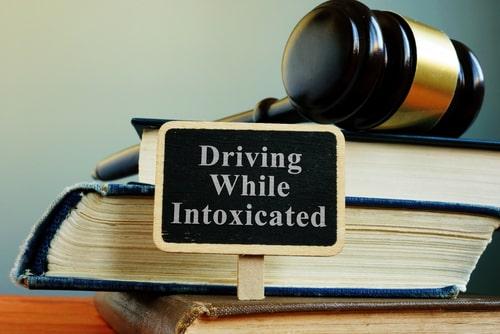 Wisconsin has what are called implied consent laws. By getting a driver’s license in our state, you implicitly agree to cooperate with chemical testing following a DUI test. This rule does not apply to field sobriety testing, however. Drivers are free to refuse to perform field sobriety testing, however, doing so may not protect you from getting arrested for DUI anyway. It is important to understand how refusing field sobriety testing and refusing chemical testing could impact your case and your driver’s license. If you were arrested on suspicion of DUI, it is important to find an experienced attorney who handles this type of case.
Wisconsin has what are called implied consent laws. By getting a driver’s license in our state, you implicitly agree to cooperate with chemical testing following a DUI test. This rule does not apply to field sobriety testing, however. Drivers are free to refuse to perform field sobriety testing, however, doing so may not protect you from getting arrested for DUI anyway. It is important to understand how refusing field sobriety testing and refusing chemical testing could impact your case and your driver’s license. If you were arrested on suspicion of DUI, it is important to find an experienced attorney who handles this type of case.
What Happens if I Refuse to Perform Field Sobriety Tests?
You should know that you are not legally obligated to perform field sobriety tests. In some cases, refusing field sobriety testing can actually help your case. Field sobriety tests are essentially an effort by police to gather evidence against you. By performing the tests, you could inadvertently incriminate yourself should you appear intoxicated during them.
5 Traffic Offenses That Could Lead to Jail Time
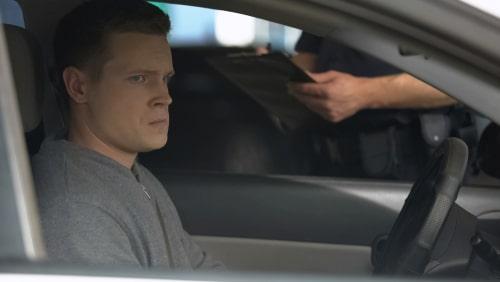 We all know that driving while intoxicated is illegal. However, DUI is not the only traffic offense for which you could be arrested or even sentenced to additional jail time. Wisconsin takes the rules of the road fairly seriously. Even getting too many regular traffic tickets can ultimately lead to criminal charges or a revoked license. If your traffic stop led to more than just a ticket you can pay and forget about, you should strongly consider working with an attorney. These more serious traffic offenses can leave you with a criminal record that will follow you for the rest of your life or even result in jail time.
We all know that driving while intoxicated is illegal. However, DUI is not the only traffic offense for which you could be arrested or even sentenced to additional jail time. Wisconsin takes the rules of the road fairly seriously. Even getting too many regular traffic tickets can ultimately lead to criminal charges or a revoked license. If your traffic stop led to more than just a ticket you can pay and forget about, you should strongly consider working with an attorney. These more serious traffic offenses can leave you with a criminal record that will follow you for the rest of your life or even result in jail time.
Which Traffic Offenses Are Treated as Crimes?
Mild speeding or failing to stop completely at a stop sign is likely to get you ticketed and released. The ticket becomes part of your driving record, but you are unlikely to end up in jail or get stuck with a criminal record - unless you keep doing it repeatedly. However, these traffic offenses are considered criminal offenses:
What Do Wisconsin's Open Container Laws Mean?
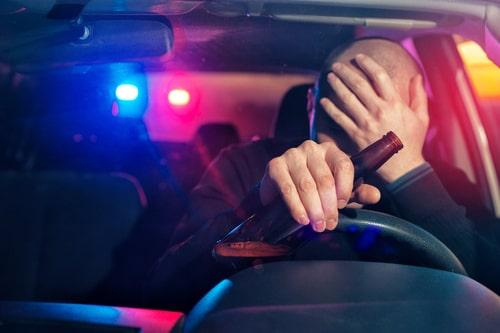 Everyone knows that driving drunk is illegal. However, there is some confusion about the legality of driving with alcoholic beverages in the car. Some of Wisconsin’s laws regarding open containers in vehicles are not so easy to interpret. Quite a few people end up getting a citation for an open container violation without even realizing that they were doing something wrong. While an open container citation is much less serious than an OWI, it can still be problematic to have on your record. A traffic attorney may be able to help if you have received this citation. In some cases, it may be better to contest the citation with a lawyer’s help than to simply pay the fine and move on.
Everyone knows that driving drunk is illegal. However, there is some confusion about the legality of driving with alcoholic beverages in the car. Some of Wisconsin’s laws regarding open containers in vehicles are not so easy to interpret. Quite a few people end up getting a citation for an open container violation without even realizing that they were doing something wrong. While an open container citation is much less serious than an OWI, it can still be problematic to have on your record. A traffic attorney may be able to help if you have received this citation. In some cases, it may be better to contest the citation with a lawyer’s help than to simply pay the fine and move on.
What Does “Open Container” Mean?
The definition of an open container in Wisconsin is broader than you may realize. A container of alcohol is open if the seal is broken or the contents have been partially removed. Therefore, you cannot re-cork a wine bottle or replace the cap on a bottle of liquor and consider it closed. Alcohol in a flask is an open container as well.
What Am I Legally Required to Do After a Car Accident?
 Getting into a car accident can at the least, majorly disrupt your day. You are not going to get where you were going anytime soon, even if you had an important meeting or appointment. At the worst, a car accident can disrupt your entire life if you face criminal charges as a result. It might be tempting to get out of there rather than stick around and identify yourself when you have caused an accident, but doing so will only make things worse. Your safest bet is to comply with Wisconsin law regarding what you can and cannot do immediately after a car accident. Then, you need to call a lawyer as soon as possible.
Getting into a car accident can at the least, majorly disrupt your day. You are not going to get where you were going anytime soon, even if you had an important meeting or appointment. At the worst, a car accident can disrupt your entire life if you face criminal charges as a result. It might be tempting to get out of there rather than stick around and identify yourself when you have caused an accident, but doing so will only make things worse. Your safest bet is to comply with Wisconsin law regarding what you can and cannot do immediately after a car accident. Then, you need to call a lawyer as soon as possible.
If I Have Caused a Car Accident, What Do I Need to Do Next?
Right after an accident, you might be experiencing a flood of emotions, ranging from panic to guilt, especially if someone got hurt. It is important to remain calm and comply with the legal steps you are required to take. After a car accident, Wisconsin law requires you to:














 262-446-9222
262-446-9222 262-446-9885
262-446-9885






